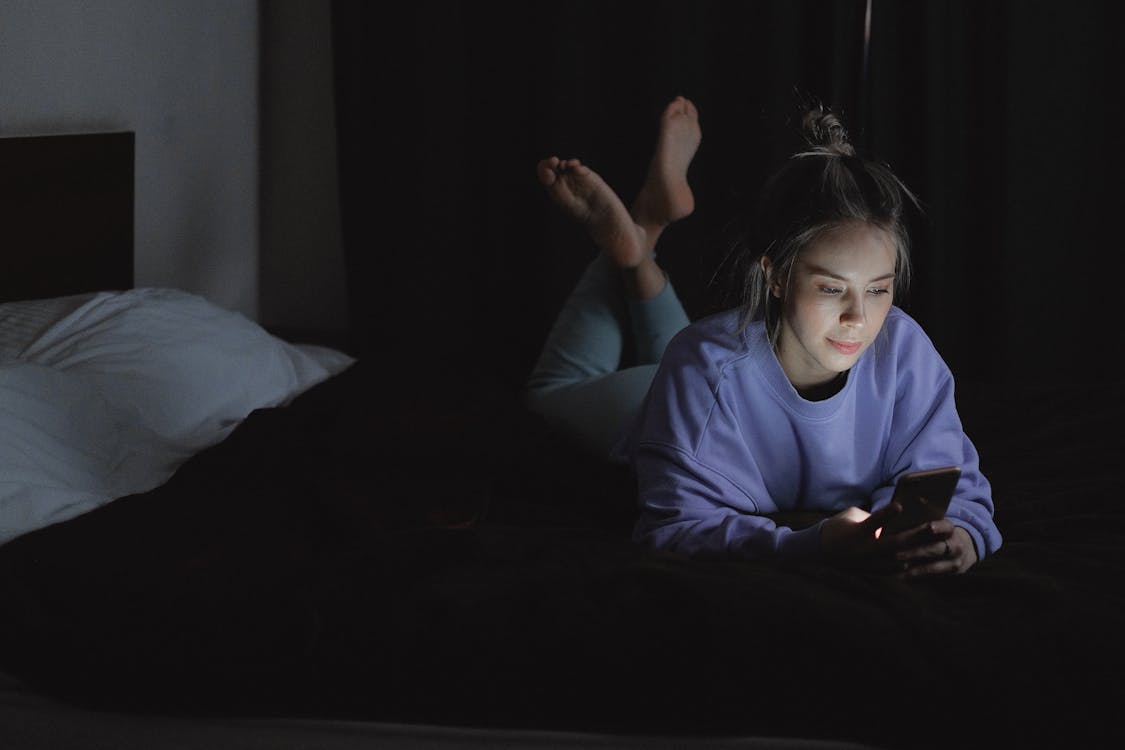Uncovering the Impact of Late-Night Phone Usage on Mental Health
In today's digital age, mobile phones have become an integral part of our daily lives, offering us communication, entertainment, information access, and more. However, research suggests that excessive late-night phone usage may have adverse effects on our mental health, potentially leading to feelings of despair. In this comprehensive exploration, we delve into the intricate relationship between mobile phone use and depression, providing you with the latest scientific insights, a thorough analysis of potential consequences, and practical guidance.
The Connection Between Mobile Phones and Depression
Understanding Mobile Phone Addiction and Its Widespread Ramifications
Mobile phone addiction, often referred to as "nomophobia," characterizes the compulsive and excessive use of mobile devices. This addiction can result in several negative consequences, including:
1. Sleep Disturbance: The blue light emitted by mobile phone screens, rich in high-energy visible (HEV) light, can inhibit the production of melatonin, a hormone responsible for regulating sleep. As a result, this disruption can lead to sleep disturbances, insomnia, and irregular sleep patterns, all of which are associated with depression.
2. Social Isolation: Excessive mobile phone use can lead to social withdrawal, with people favoring virtual interactions over face-to-face communication. This shift can result in feelings of depression and detachment from real-life connections.
3. Decreased Productivity: Constant notifications, the allure of social media, and the continuous influx of information can create a fragmented work environment, negatively affecting productivity, concentration, and overall mental well-being.
The Impact of Late-Night Mobile Phone Use
Particularly concerning is the use of mobile phones late at night, which has recently garnered significant attention. Here's how it may affect your mental well-being:
1. Increased Risk of Depression: Exposure to blue light from screens, especially at night, can disrupt the circadian rhythm, our internal clock responsible for regulating the sleep-wake cycle and mood regulation. This disruption can lead to depressive symptoms, potentially contributing to depression. Surprisingly, research has shown that screen-type light exposure between 11 PM and 4 AM activates a specific brain circuit called the habenula, which lowers dopamine levels and fosters a sense of disappointment, potentially fueling depression. Late-night screen use not only interferes with circadian rhythms but also affects brain chemistry, compounding feelings of depression.
2. Heightened Loneliness: Engaging in activities like scrolling through social media or using mobile devices late at night can intensify feelings of loneliness. Virtual connections and constant comparisons on social platforms can exacerbate feelings of inadequacy, isolation, and sadness, as individuals may perceive their own lives as falling short compared to the seemingly perfect lives portrayed on these platforms.
3. Mood Disorders: Late-night phone use disrupts the normal sleep-wake cycle, leading to mood issues such as irritability, anxiety, and, in severe cases, clinical depression. The exposure to blue light from screens inhibits melatonin production, causing sleep deprivation and irregular sleep patterns. Combined with the continuous connectivity and social comparisons on mobile phones, these factors can worsen insecurities and depression, exacerbating mood problems.
Understanding the Scientific Evidence
To shed light on the intricate connection between mobile phone use and depression, we turn to recent scientific research:
1. In a 2017 study published in the "Journal of Adolescent Health," researchers examined the behavior of nearly 9,000 young people and found a significant relationship between late-night cell phone use and depressive symptoms. The study revealed that as the frequency of late-night phone usage increased, so did the likelihood of experiencing depressive symptoms.
2. A 2020 study in the "Journal of Affective Disorders" explored the impact of excessive mobile phone use on adults. The research uncovered that individuals who spent more time on their phones were more likely to report symptoms of depression and anxiety. These studies demonstrate that the connection between mobile phone use and depression is not solely anecdotal but is supported by scientific evidence.
Practical Strategies for Mitigation
Recognizing the risks is the first step, but it's equally important to know how to mitigate them. Here are practical strategies to reduce the potential negative impact of mobile phone use on your mental health:
1. Set Screen Time Limits: Take advantage of built-in screen time management features on your device or install third-party apps to set daily limits on your mobile phone usage. These tools can help you regain control of your online behavior.
2. Avoid Nighttime Phone Use: Establish a firm rule: No mobile phone usage at least one hour before bedtime. This can lead to better sleep quality and improved mood regulation without straining your eyes.
3. Foster In-Person Connections: Focus on in-person interactions with loved ones to reduce feelings of social isolation and loneliness that mobile phone use may exacerbate.
4. Seek Professional Help: If you suspect that mobile phone use is negatively affecting your mental health and causing depression, consider seeking guidance from a mental health professional. They can provide tailored strategies and support to address your specific needs.
Conclusion
In conclusion, the relationship between mobile phone use, especially at night, and depression is a complex and evolving subject. While further research is needed to fully understand the depth of this relationship, current scientific evidence suggests a significant association. To safeguard your mental health, it is crucial to be aware of potential risks and take practical steps to mitigate them. Reducing mobile phone addiction and establishing healthy screen time habits can significantly enhance your well-being and emotional balance.



